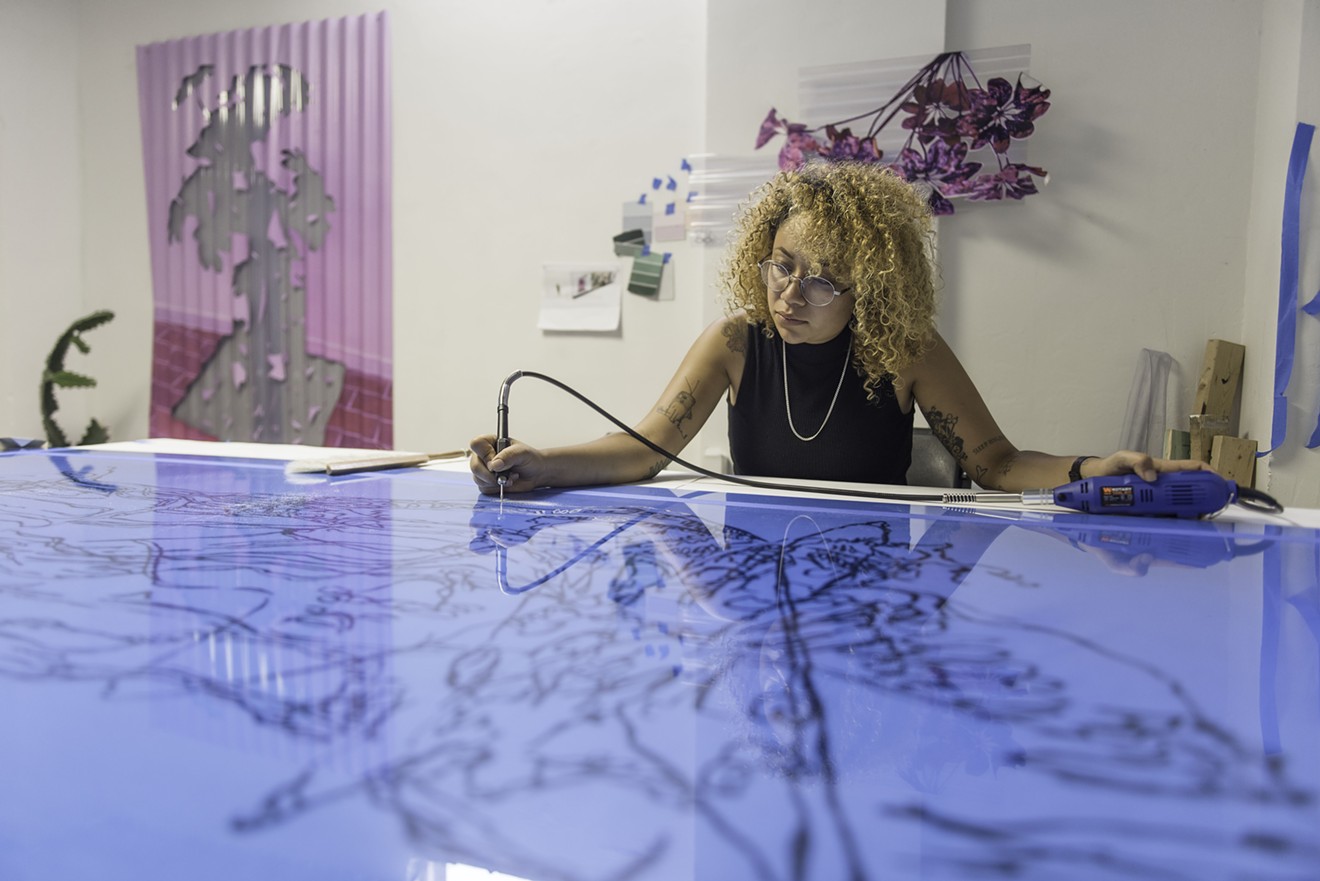That's why organizations like ArtCenter/South Florida, Bakehouse Art Complex, and Fountainhead Studios are so integral to the local art community. Most of their spaces are either subsidized or offered at low rates. An artist at Bakehouse, for example, might nab a subsidized studio or pay up to $700 per month for one of the building's largest spaces; Fountainhead artists generally spend between $400 to $600 per month for their studios, while ArtCenter artists enjoy their studios entirely rent-free.
The future looks different for each of those organizations. But one issue plays a deciding role for each: ownership, or lack thereof, of the property in which they operate. In Miami's development-hungry landscape, the only solution for artists and arts organizations seeking to preserve their long-term mission is ownership.
Back in 2014, ArtCenter/South Florida, an artist studio and exhibition space that has housed more than 1,000 artists since 1984, stunned the local community when it announced that its building had been sold for an unprecedented $88 million to a retail development firm. Purchased by ArtCenter's visionary founder Ellie Schneiderman in the late 1980s after a vigorous fundraising campaign, the sale would prove essential to ArtCenter's continued survival. Today, ArtCenter/South Florida continues to operate out of the 924 Lincoln Road building that guaranteed its $90 million+ endowment, and plans are underway to expand the organization's footprint across Miami.
"Our studio residency program is an essential part of ArtCenter's DNA. It's why Ellie Schneiderman first started ArtCenter in abandoned storefronts on Lincoln Road. She wanted to build a place where artists could create," said Dennis Scholl, CEO of the organization. "ArtCenter continues to consider its facilities options, but the studio residency program will continue to be a mainstay of its mission.”
Like ArtCenter/South Florida, Bakehouse Art Complex currently owns the historic Wynwood facility that houses roughly 40 working artists. Though the organization has experienced fundraising challenges in the past, new acting director Cathy Leff is intent on developing a model that would permanently fund the Bakehouse's affordable studio spaces, which happen to be located in one of the most desirable — and expensive —neighborhoods in Miami.
"We're putting together a long-term master plan while identifying how the real estate will be put to use," says Leff. "The Bakehouse has an incredible asset in its land because more than half of its site can be developed, but we want to be thoughtful. It's too early to know what we would build, but we know we want to create a business model that leaks out and pulls in the community." That might mean the construction of affordable housing units, a possibility Leff does not rule out. "We want whatever we build to be contextually appropriate," she says.
Kathryn and Dan Mikesell, who founded the Fountainhead Residency and subsequently, Fountainhead Studios, says the future is uncertain for their 9,000-square-foot space in Little River. The building, which was on loan to the Mikesells and recently sold, is slated for improvements to attract future development.
"I do this for the artists, and I wanted them to be prepared," Mikesell says. "So I actually pulled them together and told them we would need to move out by end of 2018, and that they should start looking now." Since then, improvement plans have stalled — but Mikesell is well aware her endeavor is on borrowed time. "I got the owner to guarantee at least 60 days notice when they need us to move out," she says.
Meanwhile, she's focusing on a new project that would bring more people directly to existing local studio spaces and encourage new and existing patrons to collect art. "As Miami has grown, we haven’t had a lot of large studio complexes. We have a lot of smaller ones like Laundromat, or a lot of artists working in warehouses they rent themselves. But none of them are public," she notes. "I want to introduce people to the wealth of talent here in Miami, and encourage them to support more local artists."
As culture continues to draw massive investment into South Florida, arts organizations and artists alike would be wise to prioritize ownership. Up-and-coming areas like Hialeah, Allapattah, and Opa-












